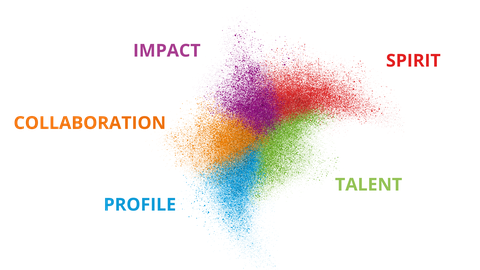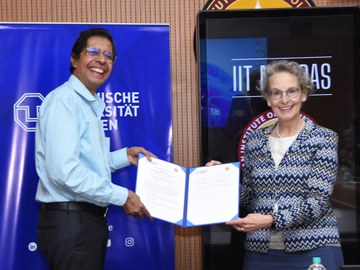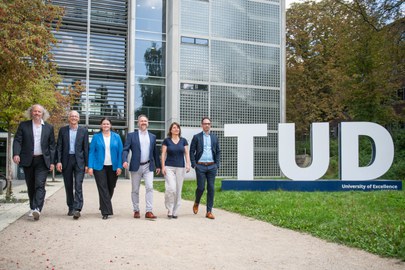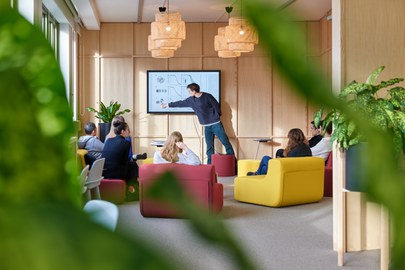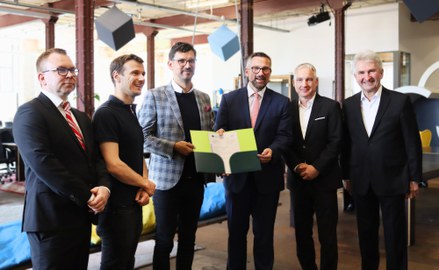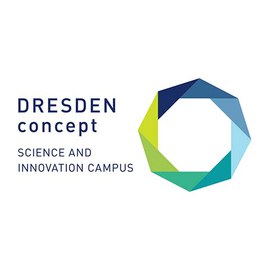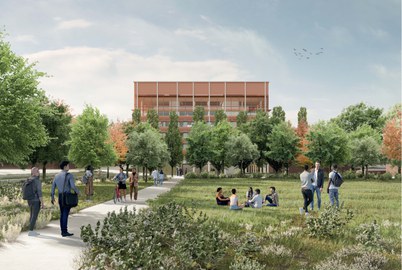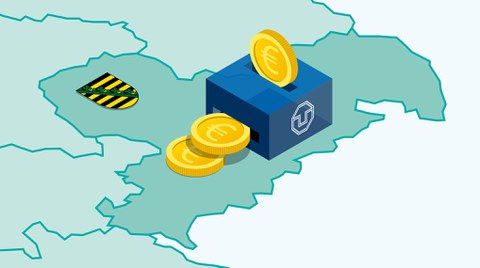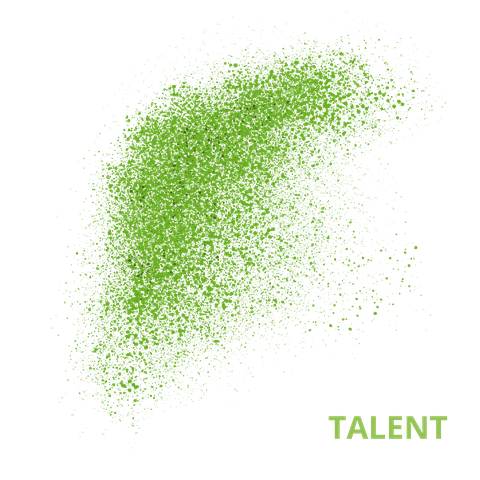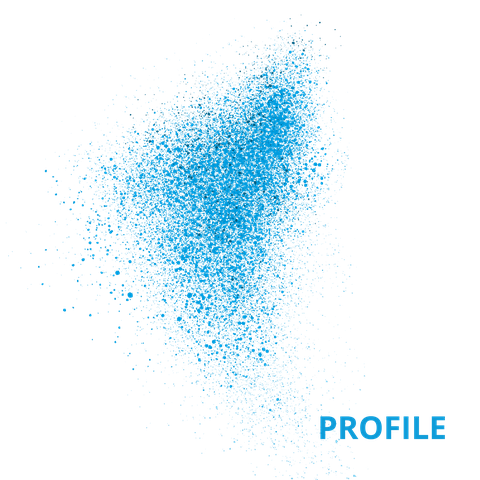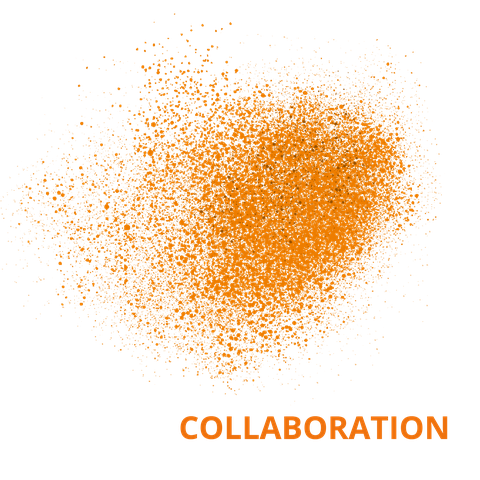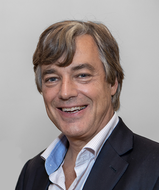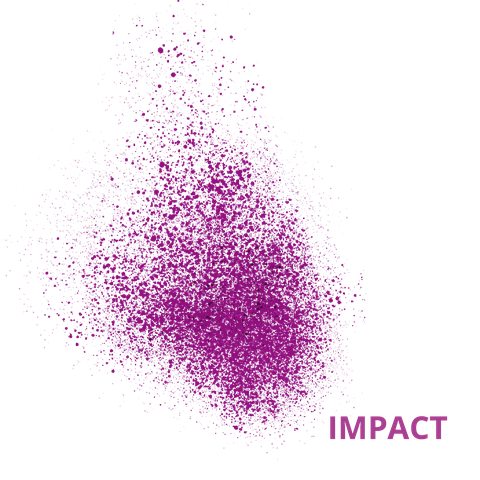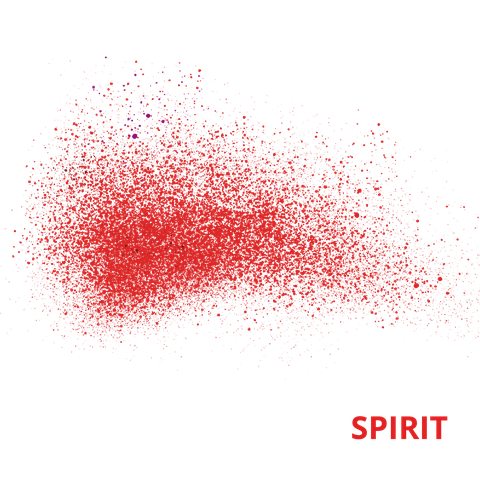Measures and projects
TU Dresden has made tremendous progress over the past decades compared to other universities in Germany and abroad. The peak of this development is marked by the university being awarded the renewed University of Excellence status in 2019. The projects outlined in the Excellence proposal can be divided into five strategic areas with 13 measures:
Table of contents
Talent
In the strategic area of activity TALENT, TU Dresden pursues the goal of actively finding and recruiting dedicated researchers from around the world who shape their academic discipline with excellent research and offering them attractive working conditions as well as the greatest possible opportunities for professional development.
Attracting Excellent Professors
The strategic development and continued capacity for renewal at TU Dresden are significantly driven by the ongoing enhancement and professionalization of appointment procedures. A structured, consistent, and transparent appointment system—built on a range of carefully aligned and interlocking measures—ensures the highest quality standards.
To maintain excellence and sustainability throughout the entire selection process—from the initial application to final negotiations—the Appointment Team provides advisory and operational support to faculties and central academic units with appointment authority. The aim is to make procedures even more efficient, reliable, and equitable.
Streamlining appointment procedures is essential in an increasingly fierce global competition for top academic talent. Fast and high-quality processes enhance TU Dresden’s reputation as an employer of excellence and increase the likelihood of successfully recruiting outstanding individuals for professorships.
The professional development program “Competency Compass for Appointment Committee Members” makes a vital contribution to quality assurance. It empowers all stakeholders involved in the selection process to make fair, competency-based, and bias-aware decisions.
Further Information Chair Appointment
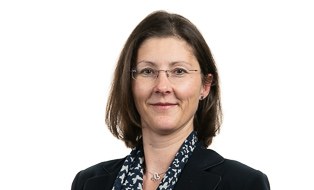 © Michael Kretzschmar/TUD
© Michael Kretzschmar/TUD
Appointment Officer of the Rector | Team Leader
NameKathrin Dietzmann
Send encrypted email via the SecureMail portal (for TUD external users only).
Visiting address:
Günther-Landgraf-Bau, room 6-119 Mommsenstraße 15
01067 Dresden
Active recruitment complements the traditional stages of the professorial appointment process through the targeted and strategic outreach to potential candidates. The goal is to broaden the diversity of applicant pools and to attract individuals from underrepresented groups to pursue a professorship at TU Dresden.
The GET TU KNOW funding program offers flexible, demand-driven visit and residency formats for outstanding scholars. These can be integrated at various stages of the appointment process and serve as a key instrument for attracting and building early connections with international talent.
The Appointment Team actively supports this process through a comprehensive portfolio of services: online recruitment campaigns, structured interview guides, and training sessions focused on bias-sensitive communication in selection procedures. The “Competency Compass for Appointment Committee Members” also contributes here by strengthening fair, excellence-driven, and inclusive decision-making in every step of the process.
A key pillar of successful integration is the Dual Career Service (DCS) for newly appointed professors. This service supports the partners of newly appointed (junior) professors in navigating their professional and personal paths in Dresden. The DCS takes a holistic approach – offering career counseling as well as guidance on family-related matters, housing, and life in the city. Through this program, TU Dresden demonstrates its strong commitment to creating a welcoming and inclusive environment for new colleagues and their families.
Further Information Active Recruitment
Further Information Dual Career Service
 © Michael Kretzschmar/TUD
© Michael Kretzschmar/TUD
Appointment Officer of the Rector | Team Leader
NameKathrin Dietzmann
Send encrypted email via the SecureMail portal (for TUD external users only).
Visiting address:
Günther-Landgraf-Bau, room 6-119 Mommsenstraße 15
01067 Dresden
The Eleonore Trefftz Program – inaugurated in 2013 – is a special format for recruiting female scientists and will be continued within the EXU framework. The program is intended to support the long-term increase in the proportion of women at TU Dresden and to promote the diversity of the research and teaching potential. To this end, highly qualified female scientists are invited by the Faculties or Central Academic Units that are planning appointments in the medium term. In this way, the visiting professors are able to explore interfaces in their research areas for a period of up to 12 months, work together with scientists at TU Dresden and familiarize themselves with Dresden as an attractive science location.
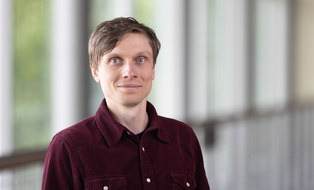 © Sven Ellger/TUD
© Sven Ellger/TUD
Advisor
NameAlexander Ling
Dresden Fellowship Program and Eleonore-Trefftz-Program
Send encrypted email via the SecureMail portal (for TUD external users only).
International Office
International Office
Visiting address:
Fritz Foerster Bau, Office 167 Mommsenstraße 6
01069 Dresden
Postal address:
TUD Dresden University of Technology International Office
01062 Dresden
Promotion of Early-Career Researchers
As the central point of contact and service center for early-career researchers at TU Dresden, the Graduate Academy (GA) and the Postdoc Center help create optimal conditions for doctoral candidates and postdocs based on internationally recognized standards and offer them the greatest possible scope for development.
The Graduate Academy offers advice and coaching, networking and career events, as well as support programs with travel grants and short-term scholarships. In addition, there is a wide-ranging interdisciplinary qualification program with workshops on academic writing, science communication, science management, leadership and management skills, and career planning. A writing workshop with specific services related to academic writing rounds out the wide range of services.
Since 2020, the Postdoc Center has been supplementing the Graduate Academy's offerings with additional tailor-made programs specifically designed to meet the needs of postdoctoral researchers. It also offers individual counseling, events, and qualification programs tailored to three career paths—academia, industry, and science management—to help postdocs clearly define their career goals and develop the skills they need for their future careers in a targeted manner.
The TUD Young Investigator program also strengthens the position of excellent, independent Junior Research Group Leaders in Dresden as a research hub. The FAST FORWARD continuing education program, offered exclusively to TUD Young Investigators, is explicitly tailored to the needs of scientists in this qualification phase.
The Graduate Academy and the Postdoc Center at TU Dresden support young scientists in realizing their full potential and preparing for high-ranking positions in science, business, and society. In this way, the Graduate Academy makes an important contribution to increasing the attractiveness of TUD in the international competition for the best talent.
Visit the Graduate Academy
Visit the Postdoc Center
TUD Young Investigator
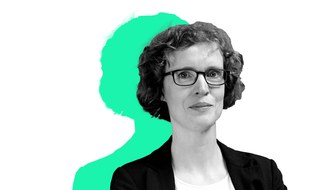 © Klaus Gigga
© Klaus Gigga
Head of Unit
NameMs Dr. Barbara Könczöl
Qualification Program
Send encrypted email via the SecureMail portal (for TUD external users only).
Visitors Address:
Graduiertenakademie Mommsenstraße 7
01069 Dresden
None
Research-Oriented Teaching
With the FOSTER program, TU Dresden is making a targeted contribution to the deeper integration of (cutting-edge) research into student training. The program offers students and lecturers the unique opportunity to apply for funding to implement research-oriented learning and teaching. It enables students to initiate their own research projects and implement them with expert support. Funding is available for participation in research competitions and international conferences, the implementation of student research projects, and the promotion of these projects, for example through exhibitions such as the Student Research Exposition (StuFoExpo) or publications. Furthermore, the development and implementation of research-oriented teaching and learning formats (modules, summer schools, tutorials, etc.) will be supported as well. In addition to regular project funding of up to EUR 5,000, larger projects can also receive up to EUR 25,000 in funding as part of an annual call for proposals.
Along with financial support, FOSTER also helps students develop their research skills. Students who get funding can go to networking events and workshops on things like academic writing and science communication. Lecturers can get advice on how to design research-oriented teaching and learning formats.
The aim of the program is to create incentives for student research, to strengthen interdisciplinarity, and familiarize early-career researchers with the research culture at an early stage in order to attract them to TU Dresden for long-term excellence in science. After 2026, the FOSTER program is to be set up permanently.
More information on the FOSTER program
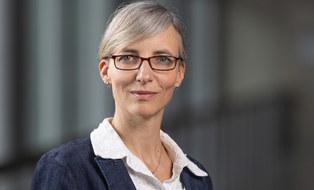 © TUD
© TUD
Head
NameHenriette Greulich
Send encrypted email via the SecureMail portal (for TUD external users only).
The Teaching Synergies Program (TSP) offers researchers from the DRESDEN-concept alliance institutions the opportunity to contribute their scientific expertise to research-oriented teaching formats in close cooperation with lecturers at TU Dresden. The program focuses on forming teaching tandems consisting of members of TU Dresden and researchers from DRESDEN-concept partners, who are supported in their joint teaching development by university didactic experts.
A key unique selling point of the TSP is its qualification program in research-oriented teaching, which is tailored to the target group – primarily postdocs. In addition to individual modules, the program includes an online self-study course and the opportunity to earn a certificate. The TSP also provides an experimental laboratory that is a space for developing and testing innovative teaching and learning formats. Lecturers will also receive customized advice on designing and creating digital learning materials.
The program's cooperative approach fosters sustainable synergies between TU Dresden and its non-university partner institutions in the field of university teaching. Participants will not only gain practical experience in research-oriented teaching, but also acquire teaching qualifications that are essential for an academic career, especially with regard to a obtaining a professorship. The integration of non-university researchers significantly contributes to the research-oriented nature and attractiveness of the courses offered at TU Dresden.
More information on the Teaching Synergies Program
 © TUD
© TUD
Head
NameHenriette Greulich
Send encrypted email via the SecureMail portal (for TUD external users only).
The Teaching Excellence Tracks (TET) combine excellent research with innovative teaching: Contents and processes from cutting-edge research—for example, from the Clusters of Excellence, Collaborative Research Centers, DRESDEN-concept partner institutions, or projects funded by the German Research Foundation (DFG)—will be integrated into structured teaching and learning tracks (e.g., as research modules, interactive formats, or individual academic coaching). These will allow for research potential to be systematically integrated into existing or newly designed degree programs.
Students with a keen interest in research-led learning benefit from an interdisciplinary, internationally compatible, and research-oriented range of degree programs. The Teaching Excellence Tracks promote a research-based approach to learning during the degree program and, at the same time, provide active access to current research infrastructures, including in digital formats.
For lecturers, the Teaching Excellence Tracks offer the opportunity to design research-oriented courses as clearly structured teaching and learning paths in order to introduce early-career researchers to their own research questions and contexts at an early stage. The program provides conceptual and structural support for the development of such paths and continuously adapts them to the needs of the lecturers.
The Teaching Excellence Tracks are an exclusive, collaborative innovation format that opens up a wide range of opportunities for participation – from developing individual teaching formats or even entire modules to helping shape committees and implementing complete teaching and learning paths. Lecturers are encouraged to contribute their own ideas and implement pilot projects together with the university.
Detailed information on Teaching Excellence Tracks
 © TUD
© TUD
Head
NameHenriette Greulich
Send encrypted email via the SecureMail portal (for TUD external users only).
Personnel Development
The central Personnel Development unit plays a key role in implementing the university's strategy by initiating and coordinating measures to promote and develop employees in a targeted manner based on the 2020 personnel development concept. In close cooperation with the various TUD stakeholders in personnel development, it designs structures, processes, and needs-based services throughout the entire employee life cycle. This includes designing a talent acquisition strategy, systematically organizing successful onboarding, strengthening the welcoming culture at TU Dresden, and providing tools to support an appreciative offboarding process. In addition, the unit develops target group-specific measures for individual and professional development. With the introduction of new qualification paths, TU Dresden is creating attractive prospects for scientific staff within their academic career paths. The supplementary personnel development concept for support staff, with a focus on agility and new work, provides the basis for concrete measures that are designed to prepare employees in a targeted manner for the challenges of digital transformation and the shortage of skilled workers, as well as to strengthen different employee groups in a future-oriented manner.
Personnel Development at TU Dresden

Head of Unit Personnel Development
NameMax Schulz
Consultant Strategic Personnel Development
Send encrypted email via the SecureMail portal (for TUD external users only).
Profile
In the strategic area of activity PROFILE, TU Dresden pursues the goal of further developing itself as a technical, comprehensive university with a greater disciplinary range to a national and international top-level, to realize internationally visible, excellent research in all Research Priority Areas and to implement broad interdisciplinarity on an equal basis.
Strengthening emerging fields
The aim of the emerging field is to broadly examine and research cultural manifestations as well as the consequences of processes of change in society. Main focal points include social and cultural conflict research, the study of the relationship between social dynamics and emotional orders, and the exploration of disruptive phenomena with regard to digitalization, as well as the tension-prone interplay between culture and technology. The newly established Chair of Digital Cultures reflects the social dynamics of digitalization in research and teaching, e.g., in the new master’s degree in Digital Humanities. Theoretical and case-related research on constellations and effects of societal change include the expertise and the full potential of TU Dresden and its partners. This will enable the generation of additional transdisciplinary impulses for the future orientation of Humanities and Social Sciences at TU Dresden, as they are already laid out in additional tenure track professorships and the Open Topic Postdoc program.
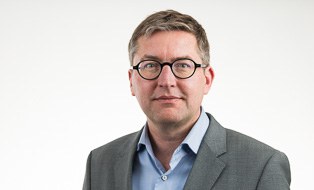 © Prof. Dr. Christian Prunitsch
© Prof. Dr. Christian Prunitsch
Chair
NameProf. Dr. Christian Prunitsch
Chair of Western Slavic Literatures and Cultural Studies
Send encrypted email via the SecureMail portal (for TUD external users only).
Visiting address:
Bürogebäude Wiener Straße, Room 218 Wiener Straße 48
01219 Dresden
Office hours:
- Monday:
- 11:00 - 12:00
Zur Zeit keine Sprechzeiten, bitte nehmen Sie im Bedarfsfall Kontakt per Mail auf.
The measure "Disruption and Societal Change” is intended to contribute to achieving scientific excellence and international visibility in all five Research Priority Areas of TUD, especially in the Emerging Field “Societal Change”, and thus to develop the university as a whole to a high level. In joint interdisciplinary work, the aim is to elevate disruption to a basic category of research into societal change and to record its preconditions, logics and effects more precisely in a basic-oriented and exemplary subject-related manner.
 © Prof. Dr. Christian Prunitsch
© Prof. Dr. Christian Prunitsch
Chair
NameProf. Dr. Christian Prunitsch
Chair of Western Slavic Literatures and Cultural Studies
Send encrypted email via the SecureMail portal (for TUD external users only).
Visiting address:
Bürogebäude Wiener Straße, Room 218 Wiener Straße 48
01219 Dresden
Office hours:
- Monday:
- 11:00 - 12:00
Zur Zeit keine Sprechzeiten, bitte nehmen Sie im Bedarfsfall Kontakt per Mail auf.
The Emerging Field Forest Water Dynamics in Climate Change is a measure that is part of TUD's Excellence Strategy and is supported by a multidisciplinary team consisting mainly of scientists from the three Departments of the Faculty of Environmental Sciences and the Helmholtz Center for Environmental Research UFZ. Our mission is to understand and maintain the ecosystem services provided by forests. The multiple interactions between forests and the water balance play a pivotal role. In an interdisciplinary approach at the interface of forest and water, we measure, observe and analyze the water balance in the forest ecosystem across a hierarchy of scales - from the leaf to the global level. We take into account interactions between soil conditions, biological communities, ground and surface water and the atmosphere.
Based on a deeper understanding of forest-water interactions, we aim to develop scientifically sound adaptation strategies for future forest mangement as well as to ensure water availability.
As part of the Emerging Field, a new Chair "Data Analytics in Hydro Sciences" headed by Prof. Jakob Zscheischler was established as a joint appointment with the UFZ. Furthermore, an Eva Mayr-Stihl junior research group on forest-related environmental communication will be established by the end of 2025.
Current research topics of the Emerging Field are:
- Identification of resilient forest compositions and structures suitable for different climate scenarios (selection and mixture of tree species and age classes) and their effects on water availability and water quality.
- Use of remote sensing and big data methods for the regional recording of forest structures, water content of vegetation and soils, biodiversity, forest fire emissions, etc.
- Groundwater recharge in forest ecosystems
- Interactions between water, energy and carbon budgets at different spatial and temporal scales
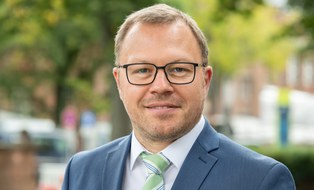 © TU Dresden
© TU Dresden
Prof. Dr. Matthias Mauder
Send encrypted email via the SecureMail portal (for TUD external users only).
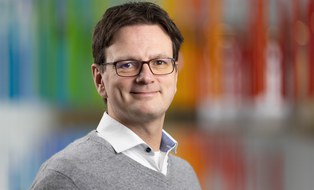 © TU Dresden
© TU Dresden
Mr Prof. Dr. Stefan Stolte
Chair Hydrochemistry and Water Technology
Send encrypted email via the SecureMail portal (for TUD external users only).
The focus of this emerging field is on designing efficient, safe, and intelligent transport systems. Transport and mobility are being rethought under the normative vision of sustainable development. Research on user needs and mobility services will drive and simultaneously inspire research on new automated and connected technologies. Five key areas have been defined for this integrative research approach:
- technological innovations
- user needs & mobility concepts
- governance & transition paths
- overarching research & simulation methods
- research laboratories & driving simulators
Close interdisciplinary cooperation of the focus areas is the central success factor for the holistic and systemic research on automated and networked mobility. TU Dresden pools the expertise of the largest Faculty of Transport and Traffic Sciences in Germany as well as various other partners at TU Dresden in the DRESDEN-concept network as well as with non-university research institutes and industry. Construction and infrastructure measures, planned large-scale research projects, and two research training groups on scenarios, evaluation, and acceptance of highly automated mobility offer excellent conditions. An Excellence Chair of Transport Modeling & Simulation should accelerate development.
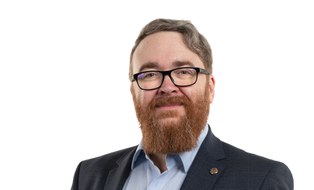 © Michael Kretzschmar/TUD
© Michael Kretzschmar/TUD
Professor
NameProf. Dr. S. Travis Waller
Send encrypted email via the SecureMail portal (for TUD external users only).
Chair of Transport Modelling and Simulation
Visiting address:
Gerhart-Potthoff-Bau, POT 003 Hettnerstraße 1-3
01069 Dresden
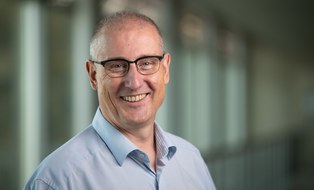 © TUD | Sven Ellger
© TUD | Sven Ellger
Managing Director
NameDr. Michael Krieg
Send encrypted email via the SecureMail portal (for TUD external users only).
Dean's Office "Friedrich List" Faculty of Transport and Traffic Sciences
Dean's Office "Friedrich List" Faculty of Transport and Traffic Sciences
The Emerging Field “Data-Intensive and Digital Science” comprises research, teaching and infrastructure of TUD in the corresponding key areas of
- Data Science
- High Performance Computing (HPC)
- Artificial Intelligence (AI)
- Robotics
- Machine Learning (ML)
- Computer Vision
In addition to the fundamental research on methods, applications of these in various disciplines, e.g. in natural sciences, engineering sciences, and medicine, are also connected in the emerging field.
The dynamic growth of TU Dresden in the area of Data Intensive and Digital Science and the foundation of the Center for Interdisciplinary Digital Sciences (CIDS) has a persistent positive effect on the achievement of several overarching goals, including talent acquisition, digitalization of research and strengthening of research-oriented teaching in the key areas of this emerging field.
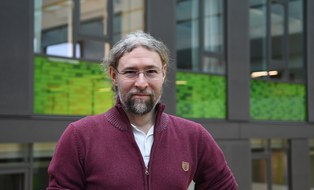 © 2020, Silvia Kapplusch
© 2020, Silvia Kapplusch
Prof. Dr. rer. nat. Björn Andres
Send encrypted email via the SecureMail portal (for TUD external users only).
Visiting address:
Andreas-Pfitzmann-Bau, 2022 Nöthnitzer Str. 46
01187 Dresden
Digitization as a driver of innovation
Digitalization, as a process with enormous technical and societal impact, poses significant challenges that require the full breadth of academic competencies available at TUD. With the Center for Interdisciplinary Digital Science (CIDS) which brings together TUD’s expertise in the field of digital and data-intensive science and will be housed in the new Lehmann Center Building. TUD addresses the fields of digitalization, digital architectures and software in a highly visible synergetic approach. This Center will promote scientific cooperation, bundle research expertise, improve support services and bolster the attractiveness of the University as a whole.
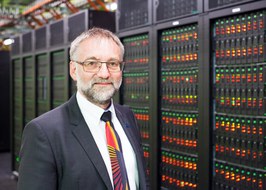 © Robert Gommlich
© Robert Gommlich
Director
NameProf. Dr. Wolfgang E. Nagel
Send encrypted email via the SecureMail portal (for TUD external users only).
Center for Information Services and High Performance Computing (ZIH)
Center for Information Services and High Performance Computing (ZIH)
Visitor Address:
Willers-Bau, Room A 207 Zellescher Weg 12
01069 Dresden
None
The Center Synergy of Systems (SynoSys) develops transdisciplinary approaches and methods in the fields of network science, data science, digital science and citizen science with the aim of conducting integrative research into complex phenomena at the interfaces between biomedicine, social sciences and life sciences. The focus is on dynamic phenomena such as pandemics, chronic diseases, mental health, planetary health, and the emergence of cooperative systems in biology and society, which cannot be understood solely through individual, traditional sub-disciplines, but only through lateral perspectives and integrative methods from complexity research. SynoSys is not only a think tank – it’s also a “link tank” that teaches early career researchers about complexity research and science beyond disciplinary boundaries. As a department of the Center for Interdisciplinary Digital Sciences (CIDS), SynoSys is a node in the network of transdisciplinary research.
Contact: Prof. Dirk Brockmann
To promote the university’s digital transformation in all performance dimensions, TU Dresden is renewing its digital and IT governance as part of the EXU program. The focus is on the establishment of a Chief Officer for Digitalization and Information (CDIO) as a member of the Extended University Executive Board in 2020. The CDIO develops strategies for digitalization in teaching, research, and administration as well as for the responsible use of IT. The main initial milestones are the establishment of the CDIO Strategy Council and the IT coordinating team, the gradual development of the Center for Interdisciplinary Digital Sciences (CIDS), and the targeted further development of IT service management.
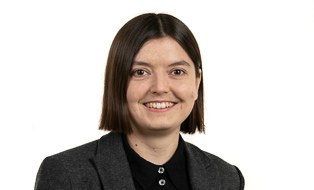 © Michael Kretzschmar
© Michael Kretzschmar
Assistant
NameMs Dr. Melanie Rödel
Send encrypted email via the SecureMail portal (for TUD external users only).
Office of the Vice-Rector Digitalisation and University Development
Office of the Vice-Rector Digitalisation and University Development
Visiting address:
Rektoratsgebäude, Raum 314.1 Mommsenstraße 11
01069 Dresden
Research Promotion
Competitive third-party funding applications are an important key to excellent research at TU Dresden. As part of TU Dresden’s research promotion, the Project Scouts team support scientists in all phases of the application for third-party funding. In this process, the STUDIO formats serve to develop and explore joint project ideas. At the same time, they promote networking and finding relevant project partners within and outside of TU Dresden. The identification of relevant funding measures in connection with text-strategic and formal guidance on the preparation of applications round off the service provided by the Project Scouts.
Further information & services of the Project Scouts
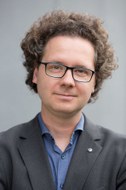 © Klaus Gigga
© Klaus Gigga
Health Sciences, Biomedicine and Bioengineering
NameDr. Sacha Hanig
Send encrypted email via the SecureMail portal (for TUD external users only).
Collaboration
In the strategic area of activity COLLABORATION, TU Dresden pursues the goal of deepening its regional and international research networks and facilitating new collaborations.
Further Development of DRESDEN-concept
The DRESDEN-concept Science and Innovation Campus measure will intensify the close cooperation between partner institutions from science and culture and take it to a new level. By making use of synergies in research, teaching, administration, and infrastructure, and through jointly supported structures, we aim to increase Dresden's attractiveness as a location for science and innovation and optimize the framework conditions for interdisciplinary and interorganizational research, especially for excellent early-career researchers. Continuous monitoring will be conducted to record and communicate the strengths of the location based on data. The DRESDEN-concept alliance also aims to make scientific findings accessible to society in an understandable form in collaboration with creative artists. Cooperation with stakeholders from the city will further increase the visibility of Dresden as a research location.
TU Dresden aims to increase accessibility and shared use of existing research infrastructures. All equipment and services are bundled with expert personnel in core facilities and professionally operated in technology platforms. This will foster the efficient use of resources, creates synergies, supports interdisciplinary cooperation, and also enable knowledge and technology transfer. The paradigm shift from “owning” to “using” is supported by strategic integration into appointment processes and large equipment procurement procedures, the establishment of new technology platforms, and the university-wide introduction of booking and management software.
Visit the website of the TUD technology platforms
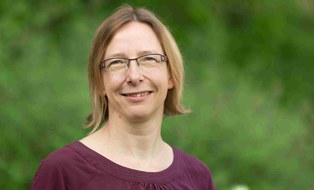 © Ellger
© Ellger
Advisor Technology Platforms
NameJuliane Hoth
Send encrypted email via the SecureMail portal (for TUD external users only).
Office of the Chancellor
Office of the Chancellor
Visiting address:
Günter-Landgraf-Bau, 6-222 Mommsenstraße 15
01069 Dresden
Expansion of International Collaborations
TU Dresden is continuing to expand its internationalization in a targeted manner in order to promote scientifically viable and synergistic cooperation. These international partnerships are particularly effective in research, but also in knowledge transfer, teaching and learning, and in the overall institutional development. One focus is on expanding key strategic partnerships and alliances with selected international institutions. We take a holistic view of internationalization, which also includes creating a supportive environment and sustainable structural conditions. In order to achieve these goals, TUD is designing incentive schemes that enable all status groups to actively participate in internationalization. In addition, TU Dresden aims to strengthen internationality as part of its culture and the self-image of all university members. This includes launching university-wide awareness and training programs and systematically aligning processes with international requirements. Our success is reflected in joint activities with strategic partners, increased international engagement among university members, and the visible anchoring of internationality—on campus, in research and teaching, in communication, and in organization.
Further information on the internationalization strategy
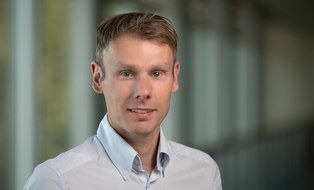 © Sven Ellger/TUD
© Sven Ellger/TUD
Head Teams Strategy and Internationalization
NameDanny Klotzsche
Advisor Strategic Partnership Work
Send encrypted email via the SecureMail portal (for TUD external users only).
The Dresden Fellows program has been attracting leading international researchers to TUD since 2013. Apart from their other scientific duties, Dresden Fellows initiate new research activities together with their TUD hosts and strengthen the cooperation through joint publications and third-party funding applications. In addition, the scientists are also given the opportunity to become involved in teaching and research transfer (e.g. through courses taught in English or research-oriented workshops). Important aspects of the program are networking with relevant colleagues at TUD and DRESDEN-concept and integration into life at the University and in the community.
Further information about the Dresden Fellows Program
 © Sven Ellger/TUD
© Sven Ellger/TUD
Advisor
NameAlexander Ling
Dresden Fellowship Program and Eleonore-Trefftz-Program
Send encrypted email via the SecureMail portal (for TUD external users only).
International Office
International Office
Visiting address:
Fritz Foerster Bau, Office 167 Mommsenstraße 6
01069 Dresden
Postal address:
TUD Dresden University of Technology International Office
01062 Dresden
TUD | transCampus has developed into a successful model that consists in a research-intensive partnership with shared structures. The transCampus with King's College London will be further deepened and expanded from its origins in medicine to areas such as mathematics and 6G/communication systems. A particular focus is placed on promoting early-career researchers through two International Research Training Groups (IRTG).
In 2024, a new TUD | transCampus partnership was established with IIT Madras. This scientific cooperation ranges from sustainability and microelectronics to medicine and transportation sciences. For the first time, the internationalization of technology transfer is also being actively promoted through cooperation with several Saxon and Indian start-ups as part of a joint initiative between TUD | excite and IITM Global/IITM Research Park. Additional selected transCampus partnerships with European and non-European institutions are currently in preparation.
Further information about transCampus
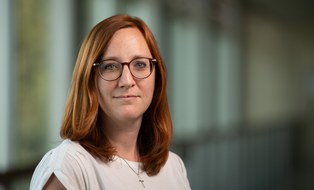 © TUD / Sven Ellger
© TUD / Sven Ellger
Team leder Strategic Partnerships
NameDr. phil. Maike Heber
Advisor transCampus partnership
Send encrypted email via the SecureMail portal (for TUD external users only).
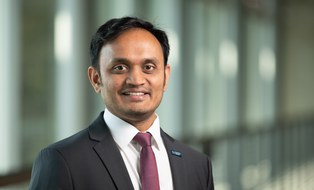 © Sven Ellger/TUD
© Sven Ellger/TUD
Advisor Impact Partnerships
NameDr. rer. nat. Avinash Chekuru
Send encrypted email via the SecureMail portal (for TUD external users only).
International Office
International Office
Visiting address:
Fritz Foerster Bau, Office 170 Mommsenstraße 6
01069 Dresden
The "transCampus science to business" accelerator program supports emerging commercial spin-off projects. The goal is to establish Saxon start-ups and SMEs in the marketplace. It was launched in 2018 in collaboration with Hebrew University Jerusalem and King's College London, and is now to be expanded in 2023 with the University of Zurich and ETH Zurich as well as with global cooperation partners from the medical sector. Support includes seed funding and the promotion of entrepreneurial thinking and acting through the Summer School on Technology Transfer in Life Sciences and close cooperation with the Center for Innovation, Transfer and Entrepreneurship (TUD|excite). The purpose is to enable project initiators to acquire their own financial resources and receive a positive marketability evaluation from TUD|excite.
Alumni are a vital part of a university's ecosystem and stand as her strongest allies. The expansion of the Alumni Office, with focused support for international alumni, contributes to TU Dresden’s visibility and reach by providing networking and exchange opportunities, alongside public relations benefits. Our international alumni also help maintain a global sense of community and continuity, ensuring that TU Dresden’s excellence extends not only far beyond the duration of a student's time on campus, but beyond borders as well.
To the Alumni Office
 © Kirsten Lassig
© Kirsten Lassig
Head of Alumni Relations
NameSusann Mayer
Send encrypted email via the SecureMail portal (for TUD external users only).
Directorate 7 - Communication and Marketing
Visiting address:
Nöthnitzer Str. 69, Room C. 104
01187 Dresden
Impact
In the strategic area of activity IMPACT, TU Dresden pursues the goal of further strengthening the impact of TU Dresden in the academic communities nationally and internationally as well as in the economy and society. As a social protagonist, TU Dresden strives to contribute to public discourse and to improve the living environment of the region's inhabitants.
Strengthening the Innovation Chain
The Center for Innovation, Transfer and Entrepreneurship (TUD|excite) pools all activities relating to IP management, know-how transfer to innovative businesses, and the TUD-related startup service dresden|exists, and supplements them with new pioneering services. In view of shorter innovation cycles, increased competitive intensity and limited resources, the time needed to enter the market is increasingly becoming a critical success factor. This is also true when it comes to sustainability, which must be addressed with a greater sense of urgency. The goal is to boost synergies, simplify processes and systematically expand the range of services for university members, corporate partners and start-ups. Innovation scouts, managers and teams will provide early support to researchers and clusters in planning their projects and the subsequent application, and they will enable quick and effective transfer.
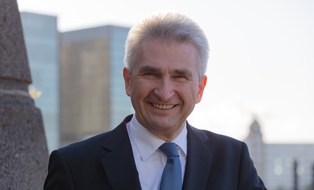 © pinkwart
© pinkwart
Chairholder
NameMr Prof. Dr. Andreas Pinkwart
Send encrypted email via the SecureMail portal (for TUD external users only).
Public Outreach
Excellent science communication is playing an ever more central role: Communicating science to society in an understandable way is meant tp promote a constructive and democratic culture of debate. For this reason, TUD trains its researchers and staff with the help of lectures and in science communication workshops to both enable and motivate them to go public with their research on their own. The TUD Young Communicators - a student video team - is helping to develop high-quality video formats specifically for younger target groups. Today, TUD increasingly relies on visual and interactive communication, such as infographics or playful approaches.
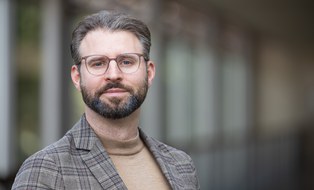 © Sven Ellger / TU Dresden
© Sven Ellger / TU Dresden
Head of Media Relations / Press Officer
NameMatthias Fejes
Send encrypted email via the SecureMail portal (for TUD external users only).
Directorate 7 - Communication and Marketing
Visiting address:
Nöthnitzer Str. 69, Room C.211
01187 Dresden
Visiting address:
Nöthnitzer Straße 69, Raum C.211
01187 Dresden
The exchange of knowledge with civil society through dialogue is what characterizes the "TUD in Dialogue" program, a measure that is anchored in the Directorate University Culture. The measure addresses topics such as the promotion of democracy and democratic values, social cohesion, participation, anti-racism, diversity and inclusion as well as sustainability. "TUD in Dialogue" sees itself as a science communication tool that is innovative, targeted and has its finger on the pulse of the times. To this end, the Excellence measure creates spaces for low-threshold formats for dialogue and participation between researchers and citizens in Dresden and the region. The aim of the formats, which are mostly outreach in nature, is to promote a constructive culture of debate and contribute to reducing skepticism towards science.
TU Dresden will celebrate the 200th anniversary of its founding with a ceremony on May 1, 2028, marking the start of the subsequent anniversary celebrations. The 200-day celebration program, which will run until November 2028, will provide an opportunity to strengthen the relevance and effectiveness of TUD for all stakeholders.
With a diverse celebratory program that will focus on current topics and focal points of TU Dresden, TUD invites its guests, students and employees, as well as citizens and local and international partners to the campus and to events in the region. The TUD presents itself as a cosmopolitan, committed, responsible, regionally anchored and internationally oriented top university that is helping to shape the transformation of science and society in a forward-looking way. To this end, numerous events and formats are being planned together, which will contribute to closer networking and cooperation with stakeholders from politics, business, media and society as well as the science community. Our important global partners, whether from Europe, the USA, India or Taiwan, will also help shape the program.
The anniversary will thus not only commemorate achievements and celebrate current accomplishments, but also pave the way for future developments, transformations and successes at TUD.
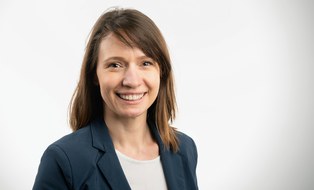 © Sven Ellger
© Sven Ellger
University anniversary project management
NameMs Bianca Prüfer M.A.
Advisor Fundraising and University Anniversary 2028
Send encrypted email via the SecureMail portal (for TUD external users only).
Spirit
In the strategic area of activity SPIRIT, TU Dresden pursues the goal of further developing its university culture. This culture is characterized by transparency, appreciation, honesty, creativity, innovative spirit and participation while facilitating top performance in the light of this set of values. In addition, TU Dresden aims to strengthen the university's willingness and ability to engage in critical self-reflection, proactive transformation, and the assumption of responsibility at all levels to become a successful learning organization.
Internal Participation and Communication
Internal communication lays the foundation for TU Dresden's success. An efficient and transparent dialogue among staff ensures a high level of motivation when working together. Moreover, well-informed staff is happier and more loyal, while also working more productively. In order to meet these requirements, internal communication at TU Dresden is constantly being refined – with a view to the needs of TUD members as well as trends in society, the professional world and digitalization. To this end, we revise existing tools, develop new communication and participation models and establish an ongoing dialogue with members of the university.
Further information can be found in the TUD intranet.
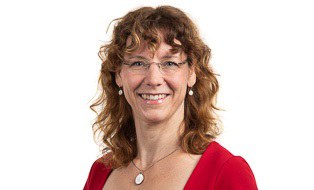 © Michael Kretzschmar
© Michael Kretzschmar
Head of Unit Internal Communication
NameClaudia Vojta
Send encrypted email via the SecureMail portal (for TUD external users only).
Directorate 7 - Communication and Marketing
Visiting address:
Nöthnitzer Str. 69, room C.201
01187 Dresden
For all employees in science, technology and administration, the TUD intranet has been accessible since August 5, 2025. Geared towards the needs of employees, the intranet offers an efficient interactive platform that enables the exchange of information and knowledge between employees, regardless of department or location.
Further information can be found on our project pages in the TUD intranet.
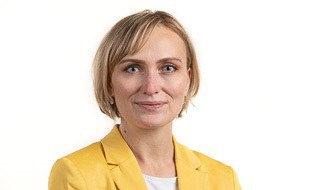 © Michael Kretzschmar
© Michael Kretzschmar
Kristina Richert
Intranet Project Management
Send encrypted email via the SecureMail portal (for TUD external users only).
Directorate 7 - Communication and Marketing
Visiting address:
Nöthnitzer Str. 69, Room C.202
01187 Dresden
This measure pursues the goal of developing processes and tools for strategy work. Both the development and implementation of the strategy as well as the analysis and monitoring of strategy implementation are taken into account. In order to continuously maintain and improve TU Dresden's ability to innovate and its position as a University of Excellence, particular attention is paid to actively involving TUD members in university development and strategy development.
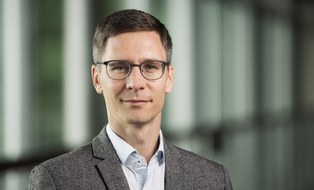 © TUD
© TUD
Head of Unit Strategy / EXU Office
NameJan Röder
Send encrypted email via the SecureMail portal (for TUD external users only).
Unit Strategy
Unit Strategy
The leadership culture project is part of the personnel development program at TU Dresden and aims to continuously develop the leadership culture at the university. For this purpose, a common understanding of leadership based on the values of TU Dresden was developed in a participatory process with managers and employees of TUD and formulated as leadership guidelines. These guidelines shall provide guidance to individuals with professional and personal leadership responsibilities in academia, technology and the administration in leadership situations and provide them with orientation for their own leadership actions. Based on this, the structural framework conditions for leadership will be reviewed and personnel development tools and programs (continuing education, workshops, team building and networking measures) will be further developed.

Head of Unit Personnel Development
NameMax Schulz
Consultant Strategic Personnel Development
Send encrypted email via the SecureMail portal (for TUD external users only).
For us, compliance means responsibly adhering to the law and to internal forms of governance, including regulations, statutes and instructions. Compliance is a key component of our members’ and associate members’ daily practice in education, research, transfer and administration. With the involvement of all university groups and staff representatives, we have established the Compliance Management System (CMS), which is tailored to the specific aspects of our various areas of activity, to firmly cement effective compliance at TUD. It is supported by four main pillars:
- Compliance in science and research
- Compliance in education
- Compliance in administration
- Compliance in interpersonal relations
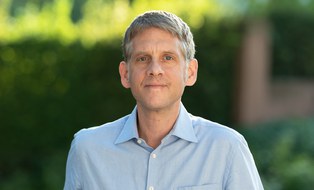 © TU Dresden
© TU Dresden
Director Division University Development
NameMr Dr. Volker Balli
Send encrypted email via the SecureMail portal (for TUD external users only).
Visiting address:
Rektoratsgebäude, Raum 303 Mommsenstraße 11
01069 Dresden
Postal address:
TUD Dresden University of Technology Geschäftsbereich Universitätsentwicklung Dr. Volker Balli
01062 Dresden
Evidence-based university development was launched as a strategic measure to contribute to the sustainable development of TU Dresden as a University of Excellence. By providing evidence-based information through an integrated reporting system, the goal is to support decision-making processes and address the challenges faced by TU Dresden as a learning organization using innovative, quality-assured methods for future readiness.
 © TU Dresden
© TU Dresden
Director Division University Development
NameMr Dr. Volker Balli
Send encrypted email via the SecureMail portal (for TUD external users only).
Visiting address:
Rektoratsgebäude, Raum 303 Mommsenstraße 11
01069 Dresden
Postal address:
TUD Dresden University of Technology Geschäftsbereich Universitätsentwicklung Dr. Volker Balli
01062 Dresden
Campus & Project House
The “Campus Development” measure aims to design the main campus as an expression of the Dresden spirit and to more closely connect the individual buildings and areas. The campus design master plan provides the conceptual foundation for the development of appealing outdoor spaces with excellent amenities. The future campus also includes TU Dresden’s accessible guidance and orientation system, featuring a uniform, bilingual, visual, and tactile wayfinding system. To make the campus socially and environmentally sustainable, the measure also aims to promote biodiversity and sustainable mobility within the university. The „Green Office“ of TU Dresden was established in 2021 as a contact point and for networking the activities aimed at improving ecological sustainability at TU Dresden.
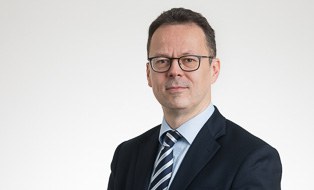 © M. Kretzschmar
© M. Kretzschmar
Director
NameDr. Volkhard Gürtler
Send encrypted email via the SecureMail portal (for TUD external users only).
The establishment of the Green Office in 2021 provides both employees and students who want to get involved in the topic with a low-threshold contact and service option. Sustainability can only be practiced institution-wide if the university community is institutionally supported in its commitment and is given opportunities for participation. The Green Office makes this possible. Stakeholders and projects are specifically connected with each other, made visible, and enabled to take concrete action. As a coordination and networking hub, the Green Office primarily operates in the areas of dialogue and transfer as well as education for sustainable development.
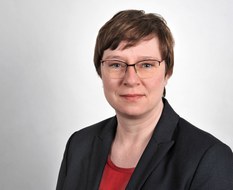 © Christina Kurby
© Christina Kurby
Director Directorate 9 – University Culture
NameDr. Cornelia Hähne
Send encrypted email via the SecureMail portal (for TUD external users only).
Directorate 9 – University Culture
Directorate 9 – University Culture
Visiting address:
Nöthnitzer Str. 43, room 101
01187 Dresden
The Project House Future will be erected at the heart of the main campus of TU Dresden. Covering topics from all Schools, the building will offer both scientists and students the opportunity to get talking to each other, advance joint scientific work and present research results. This togetherness will allow new initiatives and project ideas to be developed and put into practice until they are ready for application.
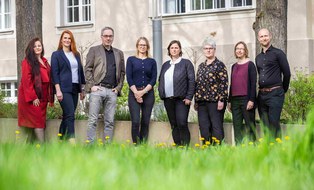 © Ellger
© Ellger
Office of the Chancellor
Send encrypted email via the SecureMail portal (for TUD external users only).
Visiting address:
Rektoratsgebäude, room 208 Mommsenstraße 11
01069 Dresden
Postal address:
TUD Dresden University of Technology Rektorat
01062 Dresden
Parcel address:
TUD Dresden University of Technology Rektorat Helmholtzstraße 10
01069 Dresden
Equality and diversity are anchored as interdepartmental topics in the strategic areas of activity TALENT and SPIRIT. Enacting its 2030 Diversity Strategy, Equality Concept, the Action Plan for Implementing the UN Convention on the Rights of Persons with Disabilities, and the “Shaping Diversity” audit, TUD is implementing an ambitious and wide-ranging portfolio of measures that promotes both structural changes and a diversity-sensitive university culture. Successful formats such as the Gender Equality and Diversity Incentive Fund, the Diversity-Sensitive Teaching Award, and the annual Diversity Days strengthen the visibility and effectiveness of these issues. By consistently expanding its areas of activity in the field of diversity, TUD is assuming societal responsibility and positioning itself as a future-oriented, equal opportunity university that serves as a role model in the German and international scientific system.
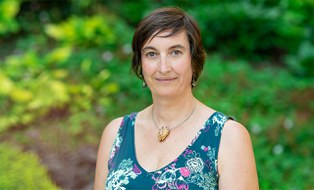 © Crispin Iven Mokry
© Crispin Iven Mokry
Head of Diversity Management
NameDr. Sylvi Bianchin
Send encrypted email via the SecureMail portal (for TUD external users only).
Unit 9.3 Diversity Management
Unit 9.3 Diversity Management
Visiting address:
Verwaltungsgebäude 3, Room 201 Nöthnitzer Str. 43
01187 Dresden
Funded by the Federal Ministry of Research, Technology and Space (BMFTR) and the Free State of Saxony as part of the Excellence Strategy of the Federal and State Government

